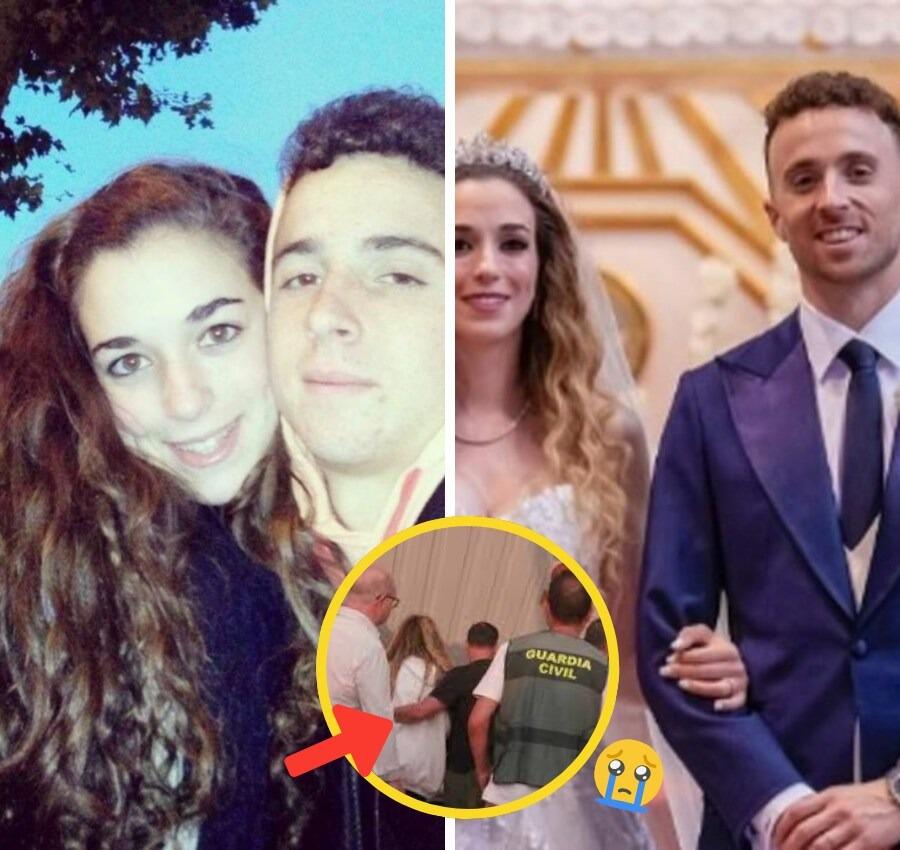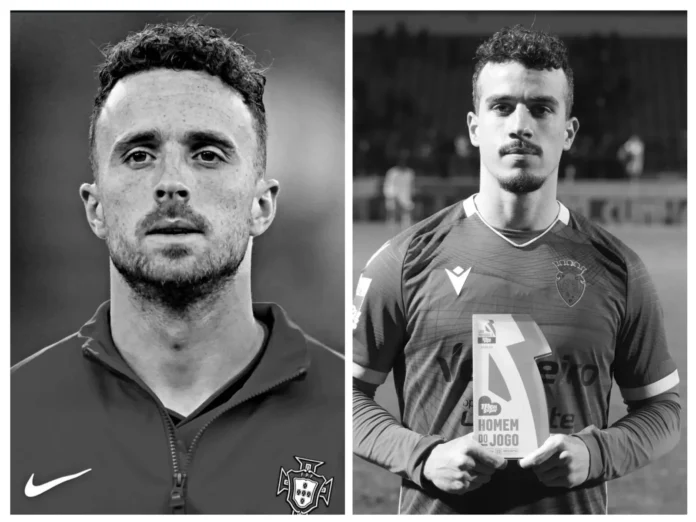Diogo Jota's Mom Wore This Shirt to the Funeral — But It Was the Note Inside Her Sleeve That Made Reporters Cry

On July 5, 2025, the small town of Gondomar, Portugal, stood still as mourners gathered at the Igreja Matriz de Gondomar to bid farewell to Liverpool FC star Diogo Jota and his brother André Silva, both tragically killed in a car crash in Spain just days earlier. Among the sea of grieving faces, one figure stood out: Isabel Silva, the mother of the two brothers, whose quiet strength and poignant tribute left an indelible mark on all present. The black shirt she wore, adorned with a subtle emblem of FC Porto—where Diogo once played—drew attention, but it was the handwritten note tucked inside her sleeve that brought reporters to tears, revealing a mother’s profound love and unbearable loss.
The Funeral: A Community in Mourning
The funeral was a somber affair, attended by football luminaries, including Liverpool captain Virgil van Dijk, Andy Robertson, and Portugal teammates like Bruno Fernandes and Rúben Neves. Hundreds of locals lined the streets, many wearing jerseys of the clubs Diogo and André represented, their silence broken only by the tolling of church bells and cries of “Força!”—a call for strength. The brothers’ coffins, carried by family and teammates, were adorned with floral tributes shaped like their jersey numbers: 20 for Diogo and 30 for André.
Isabel Silva, accompanied by her husband Joaquim and football agent Jorge Mendes, walked with a quiet dignity that belied her unimaginable grief. She wore a simple black shirt, its only adornment a small, embroidered FC Porto logo—a nod to Diogo’s early career with the club. The shirt, unassuming at first glance, became a focal point when reporters noticed Isabel clutching her sleeve, as if protecting something precious.
The Note That Broke Hearts


As the service concluded and mourners spilled out into the mid-morning sun, a reporter from Portuguese outlet Record approached Isabel to offer condolences. It was then that she gently pulled a small, folded piece of paper from her sleeve, her hands trembling. The note, written in her own handwriting, read: “Meus meninos, para sempre no meu coração. Vocês são a minha força. Amo-vos eternamente.” Translated, it means: “My boys, forever in my heart. You are my strength. I love you eternally.” The simplicity and raw emotion of the words, coupled with the knowledge that Isabel had lost both her sons just days after Diogo’s wedding to his childhood sweetheart Rute Cardoso, overwhelmed the reporter, who shared the moment with colleagues. Soon, the story of the note spread, reducing hardened journalists to tears.
The note was not meant for public eyes; it was a private message Isabel had written the night before, intending to keep it close as she faced the unbearable task of burying her sons. “I wrote it for them,” she later told a close family friend, “so they know I’m with them, always.” The gesture resonated deeply, symbolizing a mother’s unbreakable bond with her children, even in the face of unimaginable tragedy.
A Mother’s Grief and Strength
Isabel’s choice of attire—a black shirt with the FC Porto emblem—was itself a tribute to Diogo’s journey. He had played for the club early in his career, and the emblem was a quiet acknowledgment of his roots. But the note in her sleeve added a layer of intimacy that transcended the public spectacle of the funeral. Psychologists who have since commented on the story suggest that such personal rituals are common among grieving parents. Dr. Maria Costa, a grief counselor based in Lisbon, explains, “Carrying a note or keepsake is a way to maintain a connection with the loved one. For Isabel, it was likely a way to feel her sons’ presence during an impossibly painful moment.”
The bishop of Porto, Manuel Linda, addressed the family’s pain in his homily, saying, “Seeing the mortal remains of a child must be a greater torment, but when there are two urns, there are no words.” His words, broadcast to the crowd outside, underscored the depth of Isabel’s loss. Yet, her composure—clutching the note as she followed the coffins—spoke to a resilience that moved onlookers.
The Crash That Shocked the World
The tragedy occurred in the early hours of July 3, 2025, on a Spanish highway near Zamora. Diogo, 28, and André, 25, were traveling in a Lamborghini Huracan when a tire blowout caused the car to veer off the road and burst into flames. Both brothers died at the scene, leaving behind a devastated family, including Diogo’s wife Rute Cardoso and their three young children. The crash came just 11 days after Diogo’s wedding, a joyous occasion that now amplifies the family’s grief.
Diogo was en route to Santander to catch a ferry back to England for Liverpool’s pre-season training, having been advised against flying due to recent lung surgery. The suddenness of the loss sent shockwaves through the football world, with tributes pouring in from clubs, players, and even non-football figures like the rock band Oasis, who dedicated their song “Live Forever” to Diogo during a concert in Cardiff.
A Family’s Legacy and a Community’s Support
Isabel’s note and her choice of shirt have become symbols of the personal and communal grief surrounding the brothers’ deaths. Fans outside Anfield left flowers, scarves, and messages, while in Gondomar, locals like Antônio Moreira spoke of the brothers’ impact beyond football. “They were more than stars,” he told the BBC. “They were ours.”
Rute Cardoso, Diogo’s widow, was also a focal point of the funeral, helping carry his coffin and visibly distraught as she leaned on family for support. Her own grief, compounded by the loss of her husband just weeks after their wedding, mirrored Isabel’s. Yet, the presence of football stars like Rúben Neves, who flew 4,000 miles from a Club World Cup match to serve as a pallbearer, highlighted the solidarity surrounding the family.
A Lasting Impact
The image of Isabel Silva, clutching the note in her sleeve, has become a poignant reminder of the human cost of tragedy. As reporters shared the story, social media platforms like X erupted with messages of condolence, with one user writing, “Isabel’s note to her boys is the most heartbreaking thing I’ve read. No mother should endure this.” The note, though private, has sparked a broader conversation about grief, love, and the ways we honor those we’ve lost.
As Gondomar continues to mourn, Isabel’s quiet act of carrying her sons’ memory in her sleeve has left an indelible mark. It’s a testament to a mother’s love—unseen but ever-present, enduring even in the face of unimaginable loss. The football world may remember Diogo Jota for his goals and André Silva for his promise, but for Isabel, they will always be “meus meninos,” forever in her heart.
